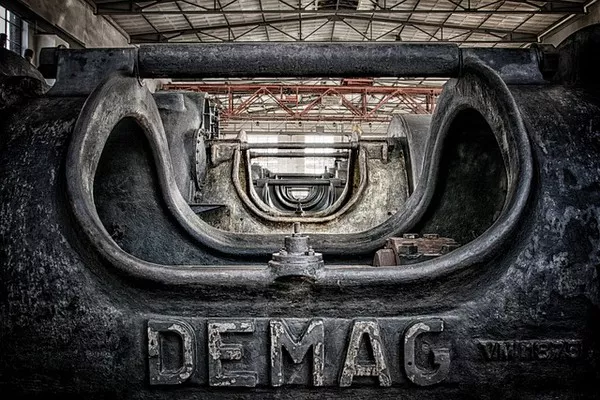Maintaining a comfortable indoor environment during hot weather is a necessity for both residential and commercial spaces. An integral component of achieving this comfort is the air conditioning (AC) system, with its heart being the AC compressor. The AC compressor is responsible for circulating refrigerant and facilitating the heat exchange process that cools the air. However, like any mechanical component, the AC compressor can deteriorate over time, leading to reduced performance and potential failure. Recognizing the signs that your AC compressor is going out is essential for timely intervention and preventing more significant issues down the line.
1. Insufficient Cooling
One of the most noticeable signs of a failing AC compressor is reduced cooling performance. If your air conditioning system is running, but the air being blown out is not as cold as it used to be, it could indicate compressor trouble. A failing compressor may struggle to circulate refrigerant effectively, resulting in an inability to achieve the desired cooling effect. This can lead to discomfort and decreased indoor air quality.
2. Unusual Noises
Unusual noises emanating from your AC system could be a telltale sign of compressor issues. If you hear clanking, knocking, or grinding noises when the compressor is running, it likely indicates internal mechanical problems. These noises might suggest that internal components are rubbing against each other due to wear and tear, potentially leading to complete compressor failure if left unattended.
3. Frequent Cycling On and Off
AC systems typically go through cycles of turning on and off as they maintain the desired temperature. However, if you notice your AC compressor cycling more frequently than usual, it could be an indication of trouble. A failing compressor might struggle to maintain consistent pressure levels, causing the system to shut down and restart more often. This increased cycling not only strains the compressor but also results in energy inefficiency and higher utility bills.
4. Warm Airflow
If your AC system is blowing warm air despite being set to cool, the compressor could be at fault. A failing compressor might not be effectively compressing the refrigerant, leading to insufficient heat exchange and warm air being circulated. This issue could stem from a variety of compressor-related problems, including worn-out components or refrigerant leaks, which compromise the cooling process.
5. Tripped Circuit Breakers
When an AC compressor is struggling or malfunctioning, it can draw more electrical current than usual. This increased current can trip the circuit breaker that supplies power to the AC unit. If you find that your circuit breaker for the AC system is frequently tripping, it’s a strong indicator that the compressor or another component is experiencing issues and overloading the electrical circuit.
6. Elevated Energy Bills
A failing AC compressor often results in reduced system efficiency, causing the system to work harder to achieve the desired cooling. This extra effort consumes more energy, leading to higher energy bills. If you notice a sudden spike in your energy costs without a corresponding increase in cooling performance, it’s a sign that your AC compressor might be on its way out.
7. Refrigerant Leaks
Refrigerant is the lifeblood of an AC system, and any leaks can significantly impact its performance. If you notice refrigerant puddles or signs of leakage around the AC unit, it’s crucial to have it inspected promptly. A refrigerant leak can lead to compressor damage as the system struggles to maintain proper pressure and cooling efficiency. Addressing refrigerant leaks early can prevent further damage and prolong the life of your AC compressor.
8. Foul Odors
A failing AC compressor can sometimes lead to unpleasant odors being circulated throughout your space. These odors might be the result of a buildup of moisture and mold within the system due to reduced cooling efficiency. Additionally, compressor issues can disrupt the proper circulation of air, potentially causing stagnant air to accumulate and develop musty or foul smells.
9. Vibration and Shaking
An AC compressor that is nearing the end of its lifespan may start to vibrate excessively or cause the entire system to shake during operation. These vibrations can occur due to imbalanced internal components, worn-out parts, or mechanical issues within the compressor itself. If you notice unusual vibrations, it’s advisable to have the system inspected to prevent further damage and potential system failure.
10. Visual Clues
Examine the exterior of your AC unit for visual clues of compressor issues. If you observe oil or refrigerant stains around the compressor or other components, it’s a sign that there may be leaks or other problems that require attention. Additionally, if the compressor itself appears rusty or damaged, it could indicate that it’s reaching the end of its operational life.
In conclusion
the AC compressor plays a crucial role in maintaining a comfortable indoor environment, and recognizing the signs of its impending failure is vital for ensuring uninterrupted cooling performance. If you observe any of the aforementioned signs, it’s recommended to consult a professional HVAC technician. Timely intervention can help prevent more extensive damage, increase system longevity, and save you from unexpected discomfort and expenses. Regular maintenance and inspections can also go a long way in preventing compressor issues and ensuring the optimal functioning of your AC system.

